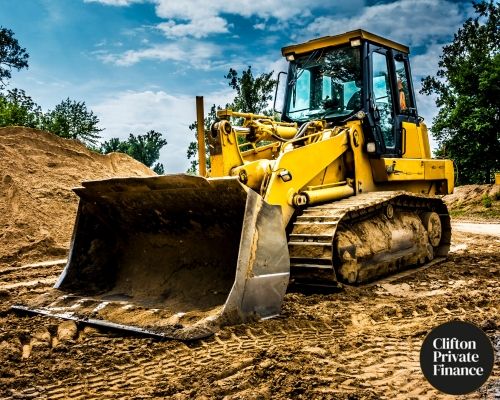What Types of Finance Are Available for Excavator Finance & Leasing?
There are different types of finance and leasing options available for excavators, depending on your needs and preferences. Some of the most common ones are:
- Hire purchase: This is a type of finance where you pay a deposit and then make monthly payments until you have paid off the full value of the excavator. At the end of the agreement, you own the excavator outright. Hire purchase is suitable for those who want to own the asset and can afford the deposit and monthly payments.
- Finance lease: This is a type of leasing where you pay a fixed monthly fee to use the excavator for a set period. At the end of the lease, you can either return the excavator to the lender, extend the lease, or sell the excavator to a third party and keep a percentage of the proceeds. A finance lease is suitable for those who want to use the asset without owning it and benefit from tax advantages.
- Operating lease: This is a type of leasing where you pay a lower monthly fee to use the excavator for a shorter time, usually less than the expected life of the asset. At the end of the lease, you return the excavator to the lender. An operating lease is suitable for those who want to use the asset for a specific project or contract and avoid maintenance and depreciation costs.
How Does It Work?
The process of applying for excavator finance or leasing is similar to applying for any other type of loan. You will need to provide some information about yourself, your business, and the excavator you want to finance or lease. You will also need to have a good credit history and demonstrate your ability to repay the loan.
The lender will then assess your application and offer you a quote based on the type of finance or leasing, the amount, the term, and the interest rate. You can compare different quotes from different lenders to find the best deal for you. Once you accept a quote, you will sign a contract with the lender and pay any fees or deposits required. The lender will then release the funds to the seller of the excavator, or arrange the delivery of the excavator to you.
You will then start making the monthly payments to the lender until the end of the agreement. Depending on the type of finance or leasing, you may also have to pay for the excavator's maintenance, insurance, and taxes. You should also keep the excavator in good condition and follow the terms and conditions of the contract. If you fail to make the payments or breach the contract, the lender may repossess the excavator and charge you penalties.
What Are The Benefits of Excavator Finance & Leasing?
- Affordability: You can acquire the use of an excavator without paying the full price upfront, which can help you manage your cash flow and budget more effectively. You can also choose a payment plan that suits your income and expenses.
- Flexibility: You can choose from different types of finance and leasing options that suit your needs and preferences. You can also adjust the term, the amount, and the frequency of the payments according to your circumstances.
- Accessibility: You can access a wider range of excavators that may otherwise be out of your reach, which can help you improve your productivity and efficiency. You can also upgrade or change the excavator as your needs change, without having to sell or dispose of the old one.
- Tax benefits: Depending on the type of finance or leasing, you may be able to claim tax deductions on the interest, fees, and depreciation of the excavator. You should consult a tax adviser to find out more about the tax implications of your finance or leasing option.
Are There Any Drawbacks?
- Cost: You may end up paying more than the original value of the excavator over the term of the agreement, due to the interest and fees charged by the lender. You may also have to pay for the maintenance, insurance, and taxes of the excavator, which can add to the overall cost.
- Risk: You may lose the excavator if you fail to make the payments or breach the contract. You may also be liable for any damage or loss of the excavator, depending on the type of finance or leasing. You should read the contract carefully and understand your rights and obligations before signing it.
- Commitment: You may be locked into a long-term agreement that may not suit your changing needs or circumstances. You may also face penalties or charges if you want to terminate the agreement early or switch to a different option.
How We Can Help
In need of excavator finance or leasing?
We can help you:
- Decide if excavator finance or leasing is right for you
- Understand what type of loan best suits your situation
- Feel comfortable with how the process works and what the costs will be
And when we’ve established the best type of finance for you, we will:
- Compare rates from multiple lenders across our network
- Negotiate the best deal for your circumstances
- Guide you through the application process
- Chase through your application until the asset is in your hands
Call our team on 0203 900 4322 to discuss your requirements or book an appointment.












